Net Worth Update July 2013 (+1.89%) – Strong Market Moves!
Welcome to the Million Dollar Journey July 2013 Net Worth Update. For those of you new to Million Dollar Journey, a monthly net worth update is typically posted near the end of the month (or beginning of the next) to track the progress of my journey to one million in net worth, hopefully by the time I’m 35 years old (end of 2014 – soon!). If you would like to follow my journey, you can get my updates sent directly to your email or you can sign up for the Money Tips Newsletter.
Lets start off with one of the favorite topics here on MDJ – the stock market! Last month I wrote about the volatility in June which is expected to last until October. However, July has been very kind to investors with a strong move upward in the TSX, S&P500 and the MSCI EAFE (international) index. The TSX gained 4%, S&P500 gained 4.9% and the MSCI EAFE advancing 3%. These gains contributed significantly towards the 1.89% net worth gain this month with my RRSP jumping 3.83% and leveraged dividend portfolio gaining 2.83%.
We also gained some lucky money this month. I rebalanced my daughters RESP in late June to purchase more international exposure due to the market decline. I must have clicked on the wrong button, but I realized a month later that I purchased 511 units (ie. all the cash in the money market account) of the international index instead of $500 worth. Lucky for me is that the index jumped about 10% during that time period! I have since rebalanced back to normal ratios and crystallized about $500 in capital gains. We also had some luck with earnings this month and had a pop in some of our smaller holdings – Facebook, Apple and Baidu.
How did your portfolio perform this month? I suspect that you had a good month as well?
On to the numbers:
Assets: $887,000 (+1.70%)
- Cash: $4,500 (+0.00%)
- Savings: $20,000 (+0.00%)
- Registered/Retirement Investment Accounts (RRSP): $158,500(+3.93%)
- Tax Free Savings Accounts (TFSA): $52,500 (+1.94%)
- Defined Benefit Pension: $46,000 (+0.66%)
- Non-Registered Investment Accounts: $169,000 (+2.42%)
- Smith Manoeuvre Investment Account: $127,000 (+2.83%)
- Principal Residence: $309,500 (+0.00%) (purchase price adjusted for inflation annually)
Liabilities: $106,200 (+0.28%)
- Principal Residence Mortgage (readvanceable): $0 (0.00%) (Paid off in 2010!)
- Investment LOC balance: $106,200 (+0.28%)
Total Net Worth: ~$780,800 (+1.89%)
- Started 2013 with Net Worth: $690,400
- Year to Date Gain/Loss: +13.09%
In my last update, readers suggested to chart my net worth progress over time. Below are the net worth values since Dec 2006 with data points taken semi annually.
- December 2006: $198,500
- June 2007: $254,695
- December 2007: $279,300
- June 2008: $310,483
- December 2008: $309,950 (rough second half)
- June 2009: $355,850
- December 2009: $399,600
- June 2010: $456,910
- December 2010: $505,800
- June 2011: $558,713
- December 2011: $585,228
- June 2012: $631,400
- December 2012: $690,400
- June 2013: $766,300
Some quick notes and explanations to net worth questions I get often:
The Cash
The $4,500 cash are held in chequing accounts to meet the minimum balance so that we pay no fees (accounting for regular bill payments – ie. our credit card bill). Yes, we do hold no fee accounts also, but I find value in having an account with a full service bank as the relationship with a banker has proven useful.
Savings
Our savings accounts are held with PC Financial and ING Direct. We usually hold a fair bit of cash in case “something” comes up. The “something” can be anything that requires cash such as an investment opportunity that requires quick cash or maybe an emergency car/home repair. We also need cash to cover any future tax liabilities.
Where Does the Savings Come From?
We don’t live a lavish lifestyle (how we save money) and do not carry any bad debt. The only debt we have is an investment loan (which pays for itself), so we end up pocketing a majority of our earnings. Our earnings come from salaries, private business income (via dividends to shareholders), and eligible dividends from publicly traded companies.
Real Estate
Our real estate holdings consist of a primary residence and REITs plus a rental property. The value of the principal residence remains valued at the purchase price (+inflation) despite significant appreciation in the local real estate market.
Pension
The pension amount listed above is the value of both of our defined benefit pension plans. I basically take the semi annual statement and add the contribution amounts (not including employer matching) on a monthly basis. The commuted value of the pensions are not included in the statements as they are difficult to estimate.
Updated 2013 – My wife has recently changed her job position which has resulted in switching from a defined benefit plan to a defined contribution plan. This amount will be added to the RRSP totals going forward.
Stock Broker Accounts
Another common question is which discount broker do I use? We actually have accounts with multiple institutions. I’m hoping to reduce the number of accounts that we hold in the near future. Here is a review of some of the more popular online stock brokers.
I've Completed My Million Dollar Journey. Let Me Guide You Through Yours!
Sign up below to get a copy of our free eBook: Can I Retire Yet?




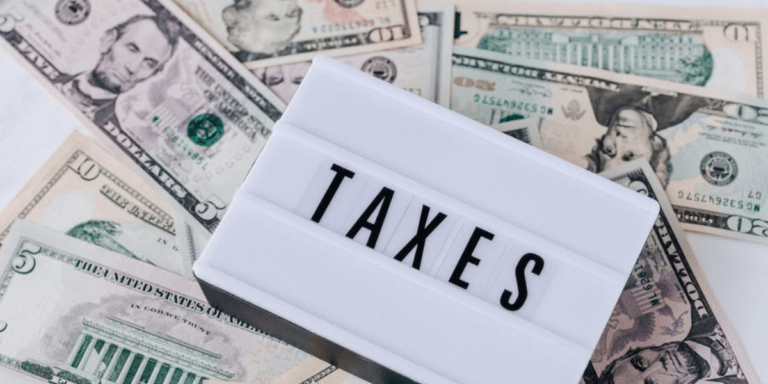
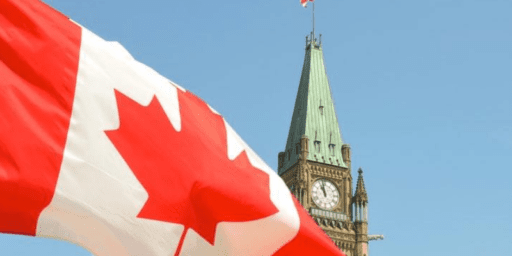

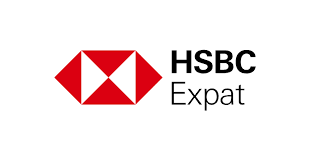
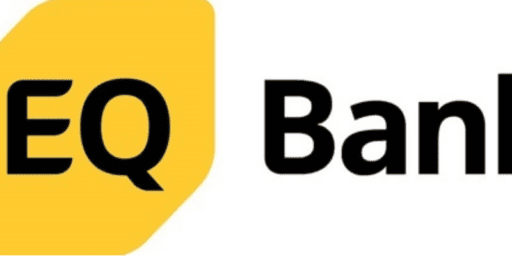
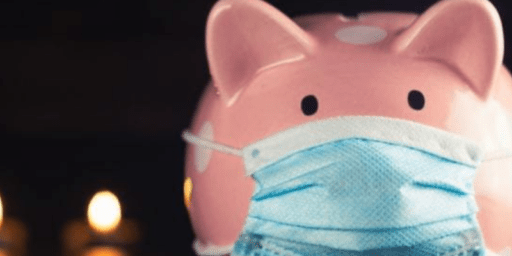

@Al it sounds like you are leaning more towards staying where you’re at vs. opening up your own shop. I can’t say I blame you as it sounds like it may be difficult to sell a practice in your town, and the extra income might not be worth the hassle at this point.
Regardless, best of luck – you are in a very high income occupation so financial rewards will come easily regardless of debt. Be sure to keep us posted :)
@FT 600-650K would be for 1/2 the clinic. In total the clinic grossed approx 1.4M last year & we may hit 1.6M this year. I’m not too sure how much the “average” associate is making after graduation, I’ve seen several sign guaranteed contracts of 150K but are paid more based upon bonuses, number of patients seen etc.
@Dan – Growth is possible but I’m booked 2 months out now, the best form of growth is by adding more high profit procedures (implants etc) in place of low profit procedures (seeing welfare patients) or by adding a part time associate to augment hours. Starting on your own is do-able in the 300-400K range but you’d have a hard time getting the schedule full right away and would definitely not have a waiting list right off the bat. So you’d have a rough month or 2 before getting really full.
Selling a practice in a small town can be hard, I’ve heard of several medical practitioners in their 70s wanting out for a number of years but haven’t had the opportunity to retire. The guy I took over for wanted out in 2005 and stuck it out until 2011.
A practice in a similar small town has been for sale since 2009 and still has no hits.
@Al the ‘hard’ assets (aka tangible) are relatively easy to value, it’s placing a value on the ‘soft’ assets (aka intangible) thats the hard part. Essentially you’d need to determine whether the portion of the purchase price that is made of of intangibles (ie. goodwill) is worth the asking price. This is a tricky area but a CBV could definitely assist.
It sounds like you arent completely sold on the idea of breaking out on your own and starting your own practice. Just curious, what is the potential for growth within the practice? Is there an opportunity to grow it even larger? it would be a shame if the practice grew to a point where you could be grossing $500k+ annually but as an employee you were stuck at $240k.
I assume $650k is for a 50% share in the practice, otherwise it’s essentially valued at 1x earnings
Owning (buying this practice or starting your own) would also allow you to negate the ‘ballooning’ lifestyle you mentioned.
Also, how easy is it to sell a practice in your area? If you owned and wanted to sell – could you sell it or would you be stuck with it?
@Al, a bit off topic, but is $240k a typical salary for a salaried dentist (non-owner)? To me, it sounds above average.
As well, is the $650k price tag to purchase the whole clinic or 50%?
You guys make some valid points about auditing the books etc
At this point the valuation would include 1/2 the “soft” assets (charts, good will, staff members, systems) as well as 1/2 the “hard” assets (chairs, desks, drills, computers etc etc.)
Starting from scratch is an option, although it may be a difficult one. I’d have to deal with setting up a clinic which would take a few months work to design layout etc and I’d likely not be able to continue my current job if I was setting up a clinic 1-2 km away. I don’t have a non-competition clause so technically this is feasible.
@Ed
– How sure are you of the figures?
Pretty sure or gross income generated from my patients, I get a daily summary
– Is this mainly just for the book of clients, or does it include a building and equipment? How much are the physical assets worth.
Physical assets are probably 60% of the purchase price. Typically purchased and depreciated as time goes along vs leased
– How many dentists in your clinic?
2 me and current owner, we’d each be 50/50 partners
– How would you do the financing? Personally or in the corporation?
Corporation would do it through a bank at prime 3%
– What are the downsides that are holding you back?
I had a lot of personal debt from dental school which I cleared up so now I’m in a position to buy where I wasn’t before. I graduated and literally didn’t have much for assets or money at all! Other than that eliminating the idea of returning to school to specialize and having to in turn re-sell a practice I just bought.
If we’re looking at a payback period or a % return we’d have to look at the increase in income vs current job as an employee. I’m due to make approx 240-245K this year before tax and I’d make 325-350K if I owned so an increase of 80-105K depending on expenses. 80/600K is 13% or 105/600K is 17%.
Interest paid on the loan is tax deductible, corporate tax would have to be paid before making loan repayments.
Is it worth the headache for an extra 80-105K and have to run a different set of books? I’d break even after about 8-10 years I’m assuming, provided I don’t start taking less money out of the corp and repaying loans. Given my girlfriends current “ballooning” lifestyle I doubt I’ll need less money any time soon.
@Al I agree with FT in that those numbers seem reasonable, but a word of caution – make sure you verify them first. The PC should have audited financials. If not, I’d seriously question them. You mentioned loan payments, so it’s probably a clause of the financing to have audited financials. Read them carefully and I’d even go as far as to call the audit firm and get them to come up with a value or atleast get their opinion (beyond a ‘clean’ audit opinion on page 1 of the financials)
@Al, I was going to comment that 2x EBITDA (earnings before interest, taxes, depreciation and amortization) seems like a very reasonable valuation providing that it includes everything (assets etc). Have you considered starting from scratch? Or has your existing dentist really built a large client base?
Hi Al,
Buying your clinic looks like a good rate of return. The main question is: Should you start your own instead? How long would it take to build up your own clientele if you just put up a sign and advertised a bit?
From my experience, doctors rarely are able to sell their practices at all, but dentists often do.
A couple questions:
– How sure are you of the figures?
– Is this mainly just for the book of clients, or does it include a building and equipment? How much are the physical assets worth.
– How many dentists in your clinic?
– How would you do the financing? Personally or in the corporation?
– What are the downsides that are holding you back?
The return, based on your figures looks good. If you clear $325K after expenses, then subtract say $30K interest gives you a net of $295K. You get the corporate tax back when you pay it out to yourself. The top personal tax rate in NB is 45%, so after tax you would have $162K left.
Dividing $162K/$600K = 27% return.
There is obviously risk and uncertainty, but a 27% return is not bad.
Ed
Overhead would include all the expenses – salaries, equipment leases/loans, supplies, utilities, lease/rent. Probably 325K/year to keep it running.
Your cash flow statement would look like this:
Gross income – expenses (overhead) = Net Income
Net income – corporate income tax (15.5% NB) = Gross Profit
Gross Profit – Loan Payments = Net Profit
Which you then have to pay personal income taxes on to spend.
@Al, what does overhead include? Do you know the total expenses per year?